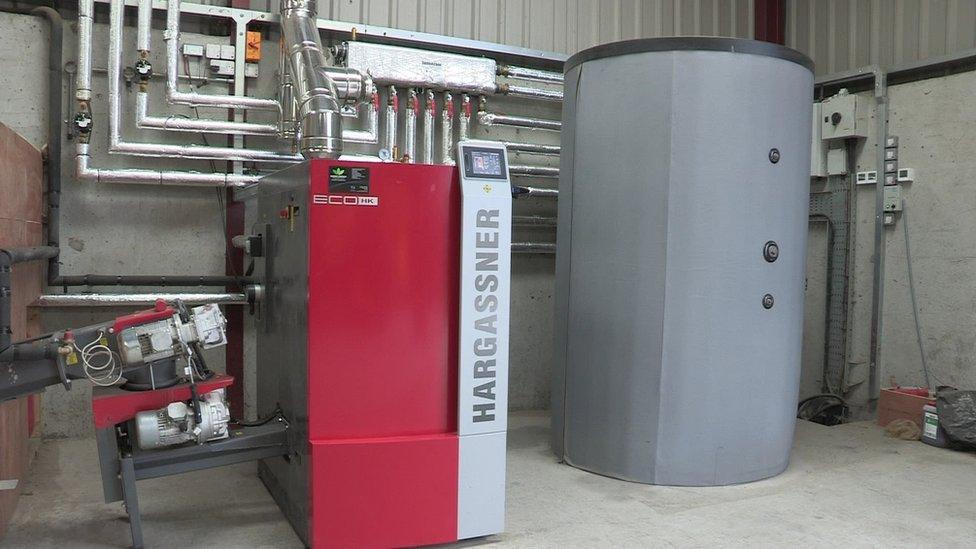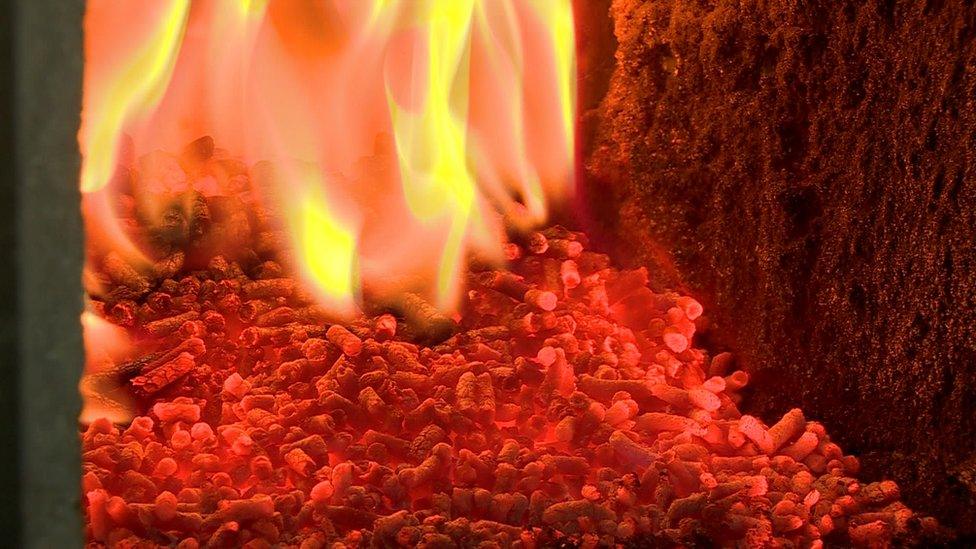RHI scheme claimants 'repaid boiler costs within a year'
- Published

Assumptions about how long boilers would run for were flawed, a barrister said
Claimants on the botched Renewable Heat Incentive (RHI) scheme were "overcompensated", with some able to repay boiler installation costs within a year, a court has heard.
They also stood to earn considerable subsidy sums, which was never intended.
Had controls not been introduced, the cost to Northern Ireland's block grant over 20 years would have been £200m more than the £500m first estimated.
The claims were made in the course of a legal action in a Belfast court.
Stormont's Department for the Economy is contesting a legal challenge to cuts in tariff payments that it introduced earlier this year.
A group of beneficiaries of the RHI scheme have said they were guaranteed a fixed rate for the 20-year term of the scheme.
'Flawed assumptions'
A barrister for the department said the payment rate had been based on certain assumptions made by consultants.
These included the size of the biomass boilers used through the scheme and how long they would run.
These turned out to be "flawed", he said.
Bigger boilers were installed and were run for much longer than had been anticipated.

One farmer stood to collect £2.5m from the scheme over 20 years, the court heard
Added to the fact that the tariff was higher than the cost of the fuel used in the boilers, major financial problems arose in the scheme.
The barrister said the scheme was only ever meant to compensate businesses for the cost of switching from fossil fuels to biomass systems.
It was also designed to deliver a 12% return on their investments.
Some businesses, he said, were actually enjoying a rate of return in excess of 50%.
"Some operators have multiple boilers, so you can see the scope for overcompensation," he told the court.
'Could have earned £2.5m'
He cited the example of one poultry farmer who had spent £111,000 on installing four boilers and had received a subsidy of £226,000 to date.
The court was also told that the business would have been in receipt of £115,000 a year in subsidy prior to the introduction of cost controls.
The farmer would have stood to earn £2.5m over the the 20 years of the scheme.
"That's likely to be seen by most reasonable people as overcompensation," added the Stormont department's barrister.
A departmental assessment showed that more than 40% of those who had joined the scheme in its early years had already recouped all of their boiler installation costs and more, he said.
Boiler owners have said they took out big expansion loans on the strength of the promised subsidies.
But the department said the scheme was clear about what it did and did not cover, and any additional financial risk businesses took on was their own responsibility.
The case continues.
- Published7 November 2017

- Published23 October 2019
